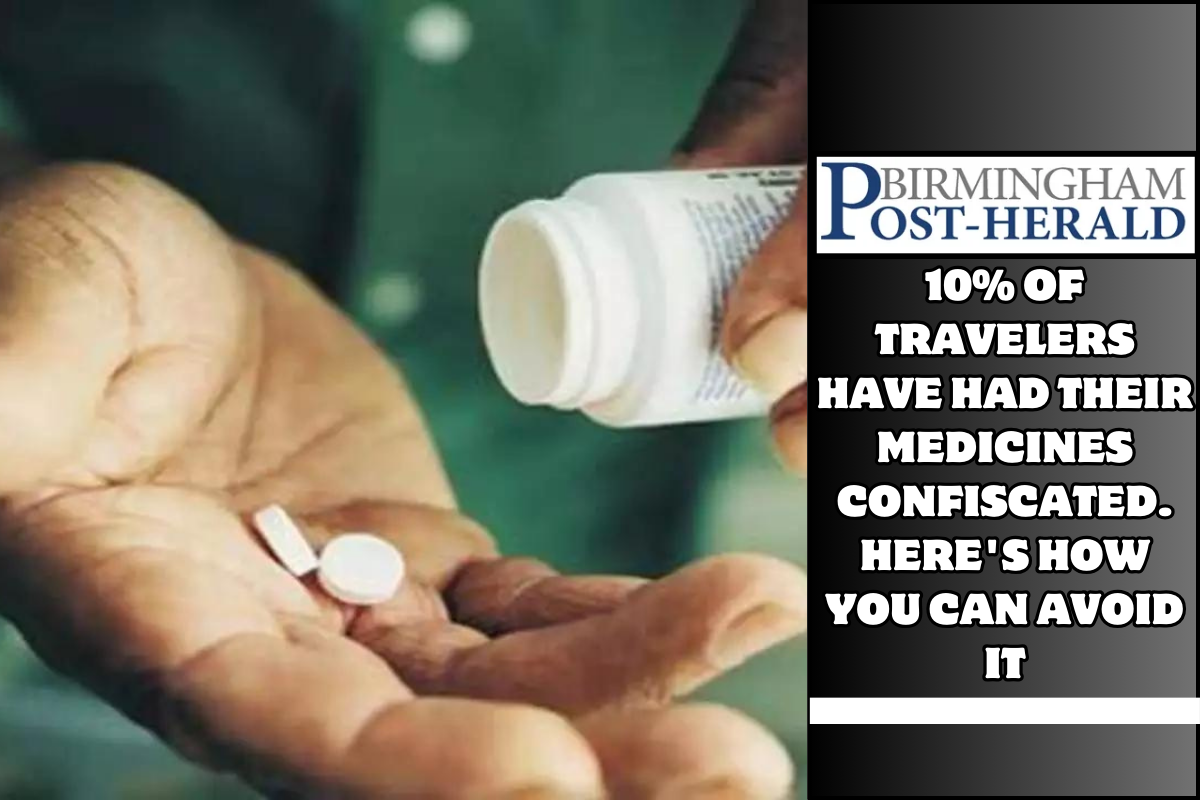10% of travelers have had their medicines confiscated. Here’s how you can avoid it:-It is always a good idea for passengers to keep their medication in their carry-on bag; nevertheless, even if they maintain this practice, there is no assurance that they will arrive at their ultimate destination with all of their prescriptions.
10% of travelers have had their medicines confiscated. Here’s how you can avoid it
One out of every ten Americans has had their medication taken away from them while they were traveling, either by the Transportation Security Administration or by border patrol agents in other countries, according to a poll that was conducted in January by BuzzRx, a prescription discounting service. The survey was conducted among 1,245 Americans.
“It is imperative to research the destination, especially if traveling internationally, about what their medication requirements are,” said Ricardo Rodriguez, a member of BuzzRx’s data team, in an interview with USA TODAY. “This is especially important if you are traveling internationally.”
It was noted by Rodriguez that certain medications that are permitted in the United States are not approved in other nations, which could make traveling with them more difficult. The best course of action would most likely be to have a conversation about the matter with your service provider.
It is about as probable that medicine will be confiscated on domestic excursions as it is on international trips, with 41% of respondents reporting that it had happened to them. On overseas trips, 44% of respondents said that they had experienced it.
Also Read:-Did Blake Snell and Co. overplay hand in free agency – or is drought MLB’s new normal?
When traveling within the United States, the Transportation Security Administration (TSA) suggests that you retain your medicines in their original containers that are clearly labeled. If a traveler’s medication is in liquid form, the Transportation Security Administration (TSA) regulations let them to transport more than 3.4 ounces, which is the typical maximum for liquids.
According to information provided by BuzzRx, one in nine travelers have been forced to cancel their trip as a result of having their medication confiscated at the airport. Additionally, one in six travelers have been able to get replacement medications, but they have been required to pay the entire price for the prescription.
According to the findings of a poll conducted by BuzzRx, more than fifty percent of respondents stated that the presence of their medication exacerbated their tension and anxiety in relation to a trip, and eighteen percent stated that it compelled them to cancel certain activities during their vacation.
It was the anxiety medication that was confiscated the most frequently, followed by sleep aids and over-the-counter medications on the list of categories.
According to Rodriguez, travelers should contact their physician to inquire about the possibility of having medicine that has been confiscated replaced. Additionally, travelers may consider obtaining assistance from a consulate or embassy in the event that the problem occurs outside of the country.

